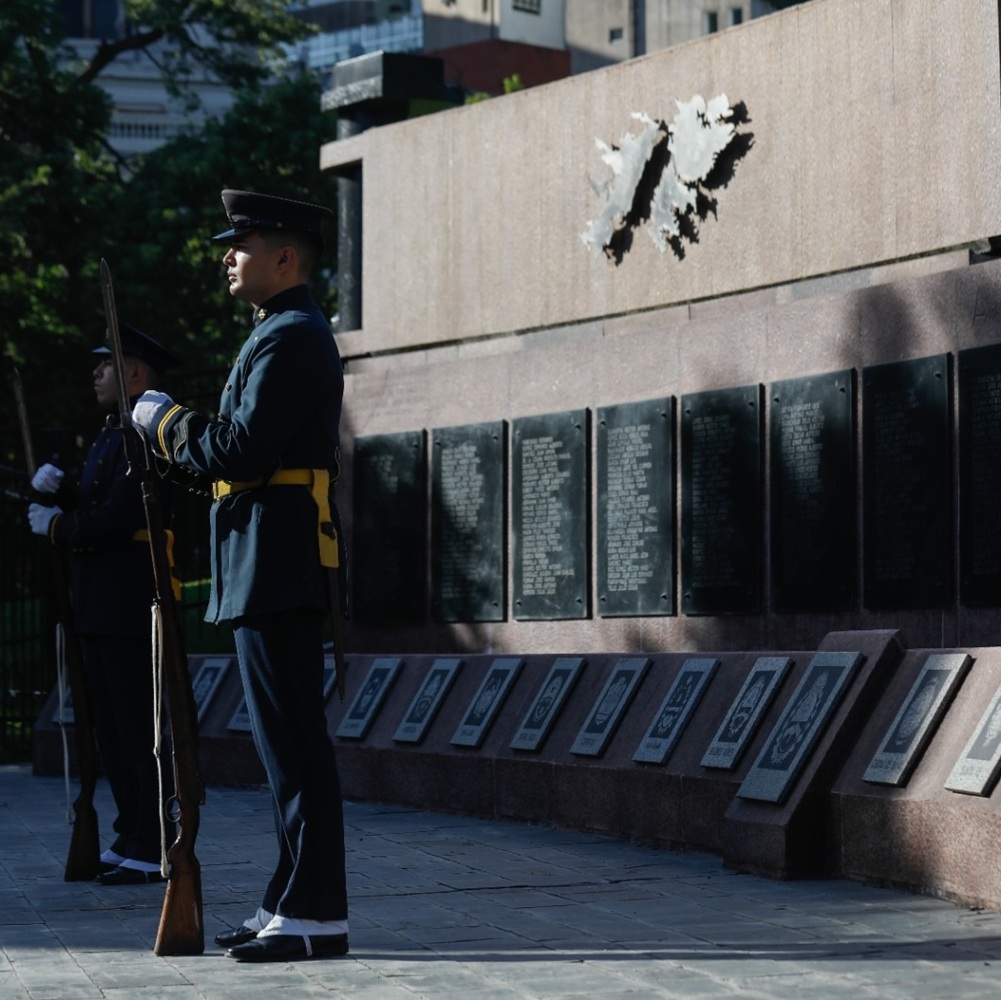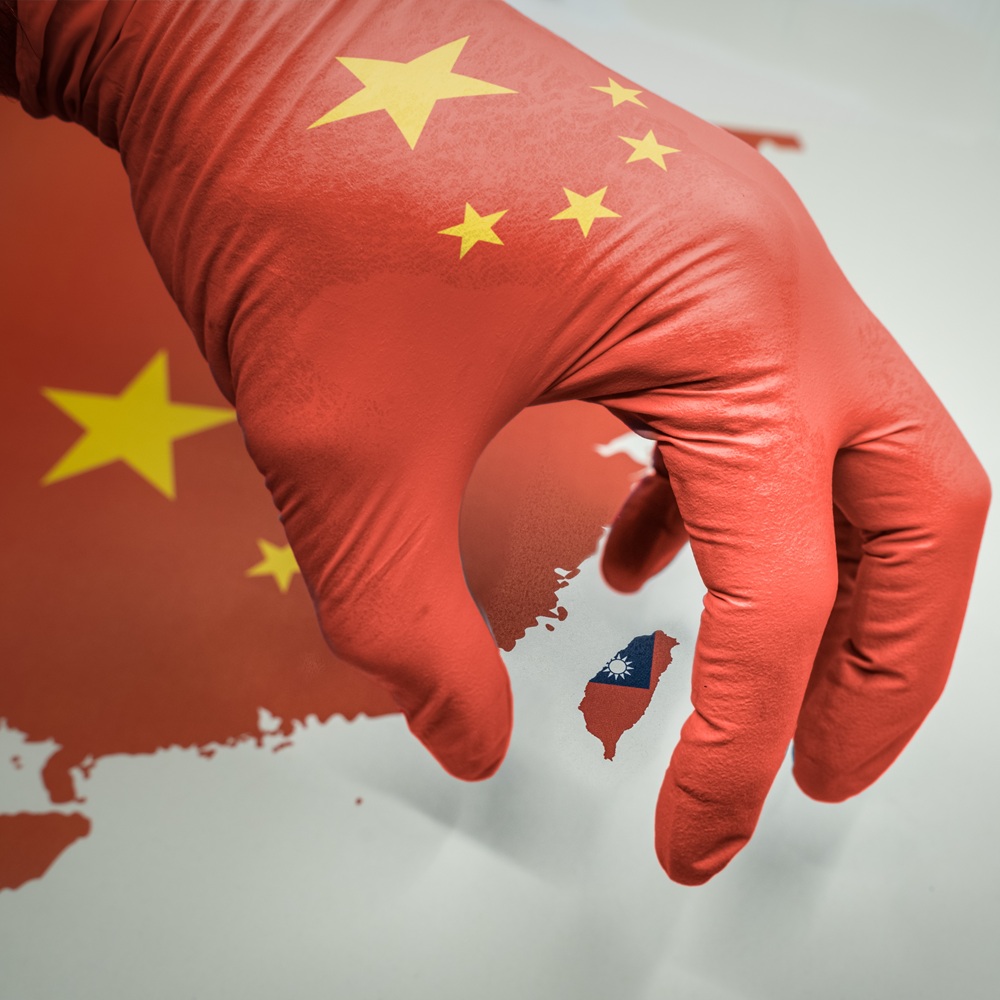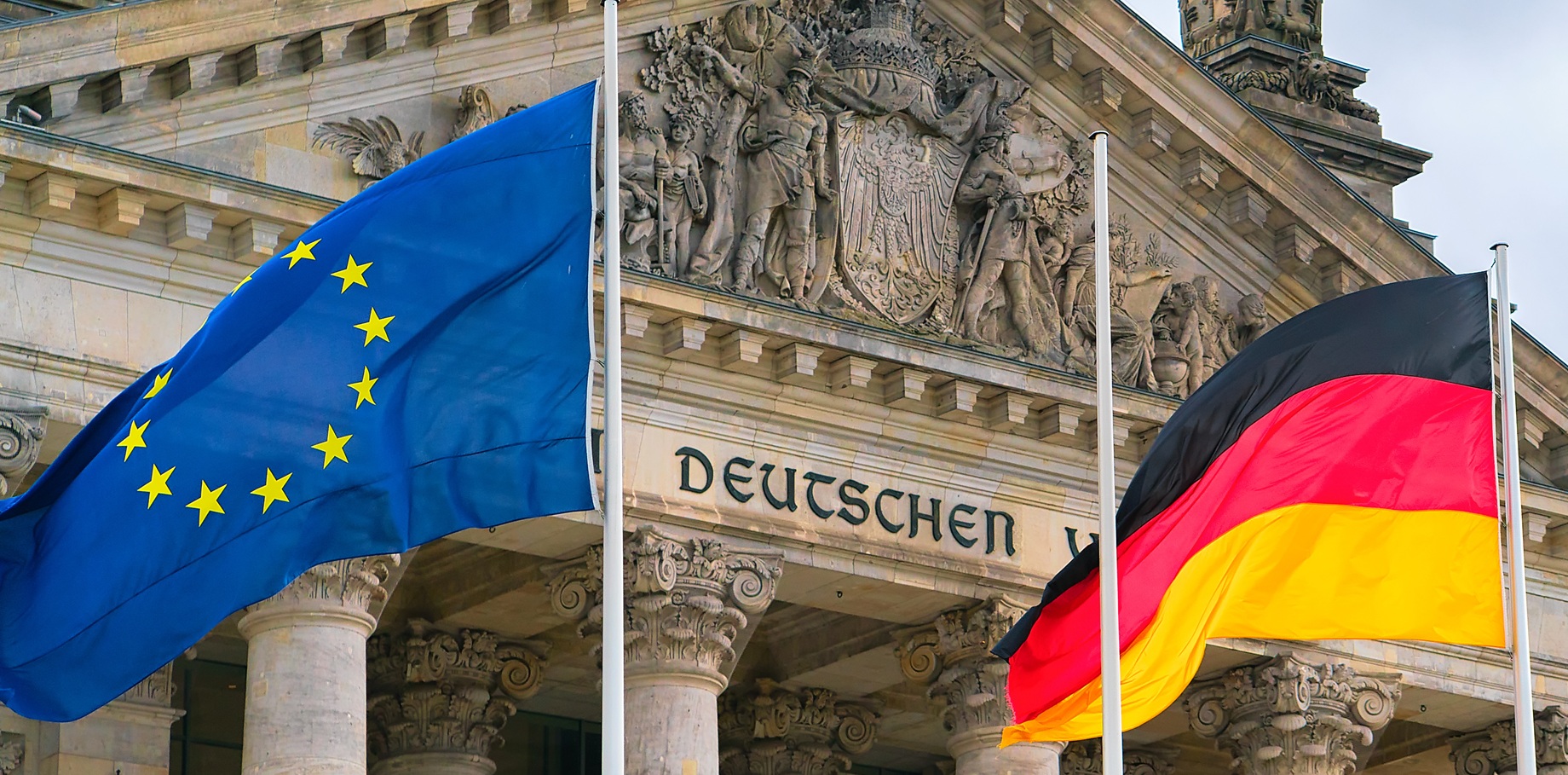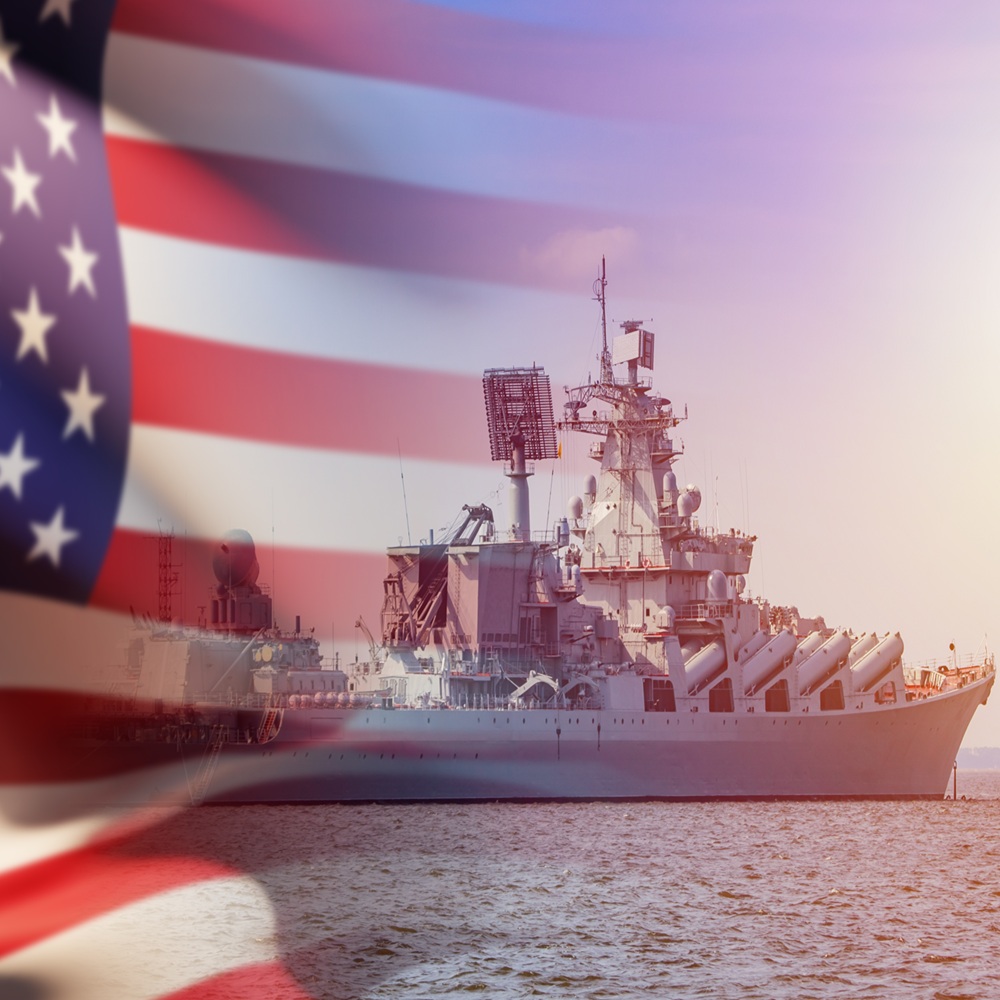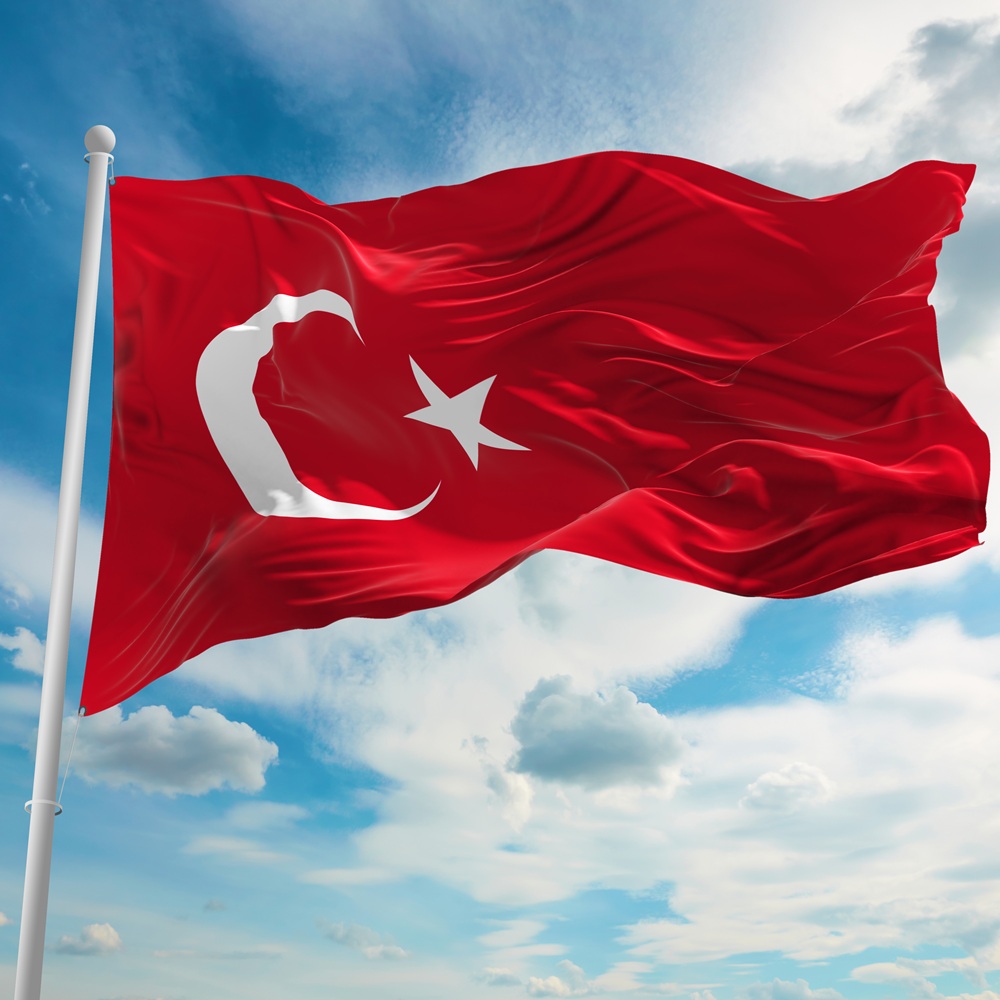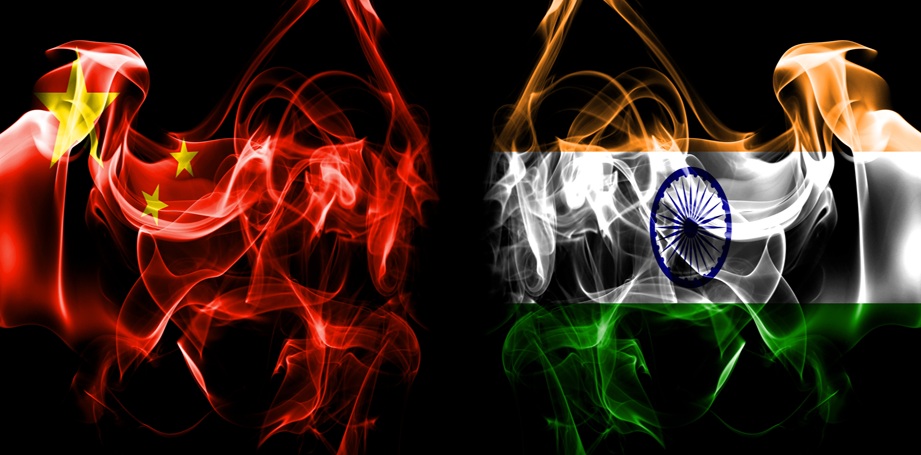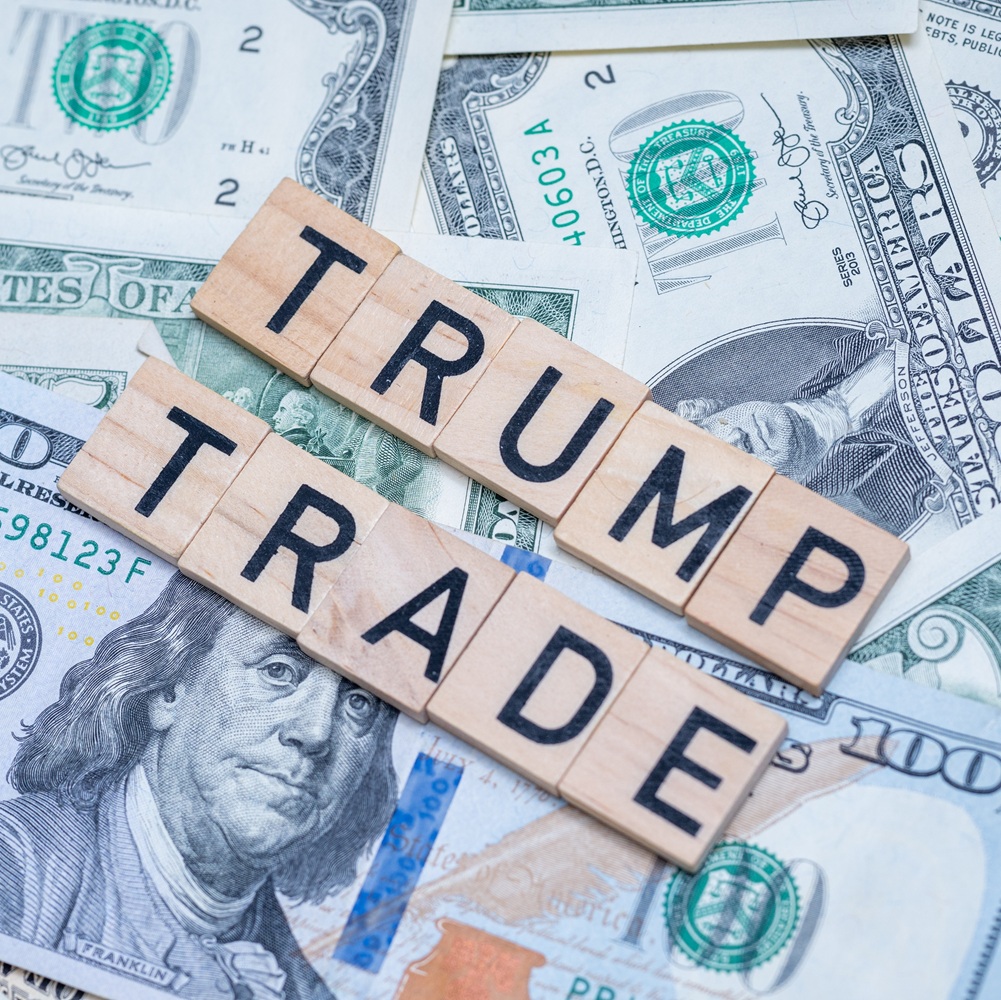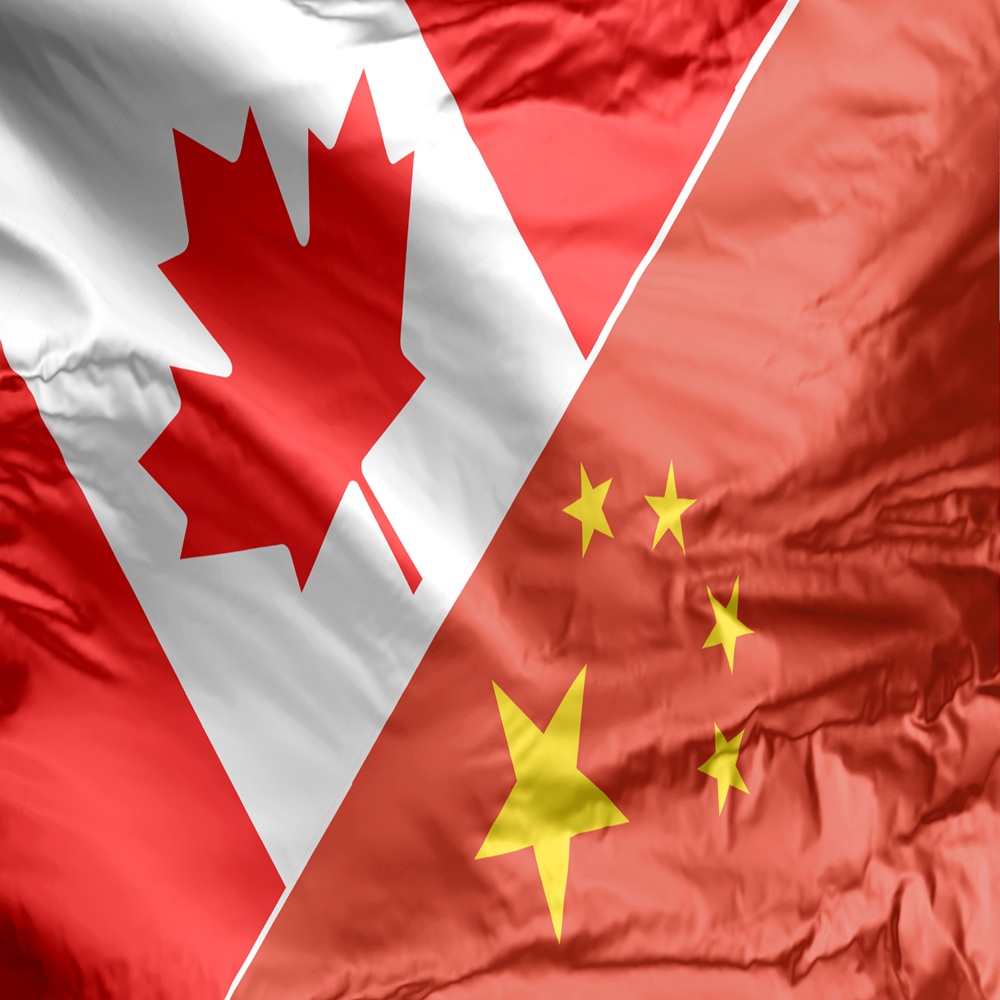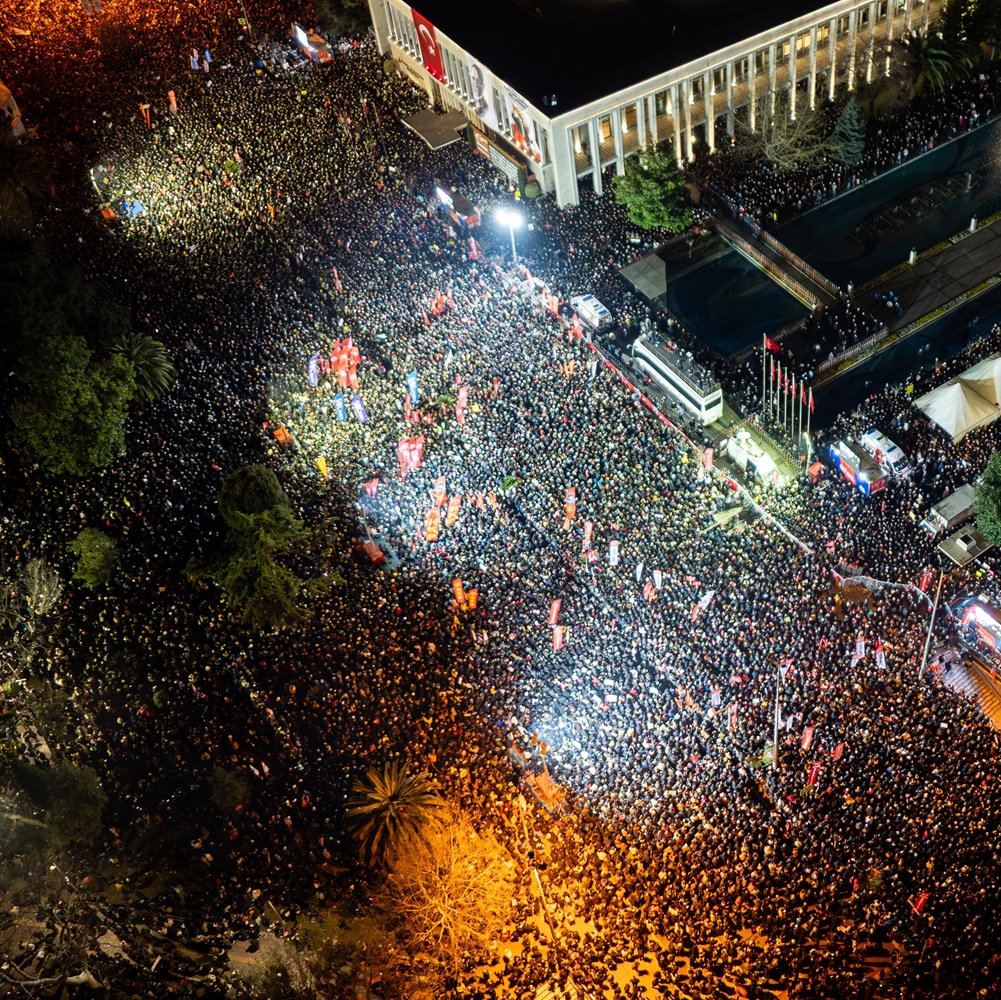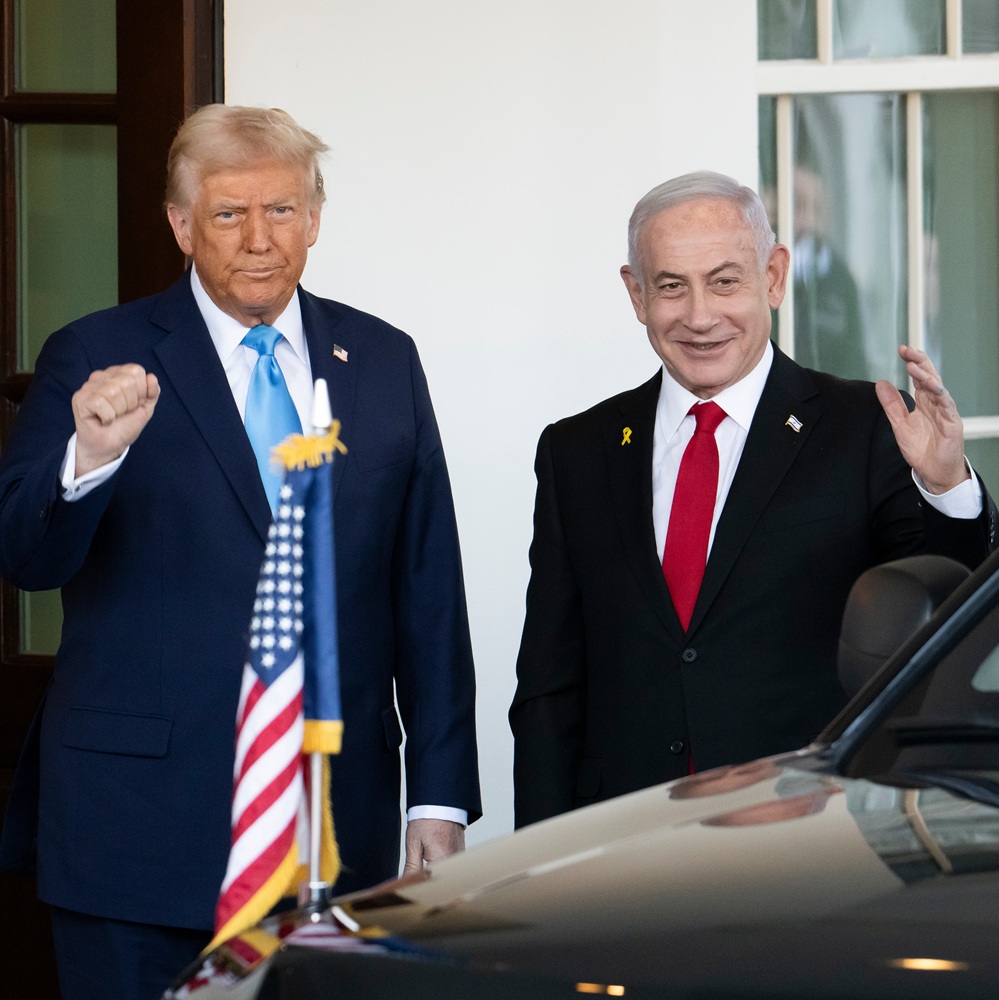The Dragon and the Tiger in Latin America: Geopolitical Competition between China and India
by Javier Fernández Aparicio
한국어로 읽기
Leer en español
In Deutsch lesen
Gap
اقرأ بالعربية
Lire en français
Читать на русском
In the current global disorder, the countries that comprise Latin America are simultaneously emerging as key players in tipping the balance of global power and are courted by major powers seeking influence and access to their natural resources, infrastructure, and services. For a decade, China has been growing in importance in the region, driven by its interest in establishing itself there through the Belt and Road Initiative, loans, investment, and construction, challenging the United States for relevance on the continent as a preferred ally. Currently, another player of the magnitude of India is slowly but surely making inroads in Latin America in trade, financing, and political relations, and is being courted by many Latin American states as an alternative to the risks that staking everything on an alliance with China can entail. Brazil, the undisputed regional leader, maintains privileged relations with both Asian giants, and the three countries cooperate and share interests and forums, such as the BRICS+ and the G20+, where common projects are developed. Introduction: a relationship with historical background The end of the Cold War and the rise of globalization led to growing regional competition in Asia, focused on both political influence and economic dominance. One of the most significant developments in the aftermath of these transformations has been the consolidation of China as a regional and, subsequently, global power. In the current context, China, India, and other nations are seeking to expand their alliances and redefine their strategies, including their relationship with Latin America, a region that has experienced multiple phases of engagement with external actors throughout its history. During the 19th and 20th centuries, interaction was centered on Europe and the United States; however, since the 21st century, the dynamics have diversified and taken on a multipolar character. Today, Latin American countries are the object of interest of various powers, from China and Japan to India and Iran. While China's presence in Latin America is evident and significant, India has traditionally maintained a more distant stance, except for Brazil.1 For decades, the limited interaction between India and Latin America was mainly attributed to factors such as geographical remoteness and lack of strategic opportunities. However, this perception has changed since Prime Minister Narendra Modi came to power in 2014. In recent years, China has considerably expanded its influence in the region through various mechanisms, while India seeks first to integrate into this dynamic and, in the medium, to compete with China in certain areas. China has established itself as one of Latin America's main trading partners, as well as one of its largest global lenders and investors.2 Its influence does not currently compare with that of India, but rivals that of the United States, the only country that surpasses it in terms of exports and imports in the continent, and the European Union in multiple sectors. In the political and diplomatic sphere, China has made significant progress, such as persuading five Latin American countries - Costa Rica, the Dominican Republic, El Salvador, Nicaragua and Panama - to transfer their diplomatic recognition from Taiwan to the People's Republic of China, although Honduras, Guatemala and Paraguay are still doing so. It has also established alliances with countries sanctioned by the US - Cuba, Nicaragua, and Venezuela - which it has supported with loans, military cooperation, and investment. However, in a context of global uncertainty, several Latin American countries are seeking to diversify their strategic alliances and reduce the risks of excessive dependence on a single power. In this scenario, India emerges as a relevant actor, with the potential to balance China's presence in the medium term in key sectors such as trade, infrastructure, supply chains, technology and defence, where India still has ample room for growth in the continent. China in Latin America: economic and strategic expansion China has indisputably been the most influential actor in Latin America between the two Asian powers, especially in the economic sphere, standing out for its participation in infrastructure projects in the Southern Cone as part of the Belt and Road Initiative. Since the beginning of the 21st century, its presence in the region has grown rapidly, with Chinese state-owned companies consolidating themselves as key players in strategic sectors such as energy, infrastructure, and technology, surpassing in some areas even the United States, traditionally dominant in these areas. In addition, China has strengthened its influence through cultural and diplomatic mechanisms. The links between China and Latin America have historical roots dating back to the 16th century, when the Manila Galleon facilitated the exchange of goods such as porcelain, silk and spices between China and the Viceroyalty of New Spain. After the independence of Latin American countries in the 1840s, there was a major Chinese migration, with hundreds of thousands of workers employed on sugar plantations, in mines and as servants in countries such as Cuba and Peru, a phenomenon that persisted throughout the 19th century. Today, Brazil, Cuba, Paraguay, Peru, and Venezuela are home to the largest Chinese communities on the continent. Initially, most Latin American countries did not recognize Mao's government after the founding of the People's Republic in 1949; however, following US President Richard Nixon's visit to China in 1972, most Latin American states established diplomatic relations with Beijing, thus initiating a period of cooperation in the cultural, economic and political spheres. On the economic front, China has established itself as a major player. In 2000, the Chinese market represented less than 2 % of Latin American and Caribbean exports, but its demand, especially for raw materials, has grown exponentially.3 By 2024, China would absorb 17% of these exports, with a value of more than 500 billion dollars.4 The main products exported by the region include soybeans and other vegetables, copper, oil and other raw materials, while imports from China consist mainly of manufactured goods. In countries such as Brazil, Chile and Peru, China has become the main trading partner.5 The strengthening of economic ties has been formalized through comprehensive strategic partnerships with Argentina, Brazil, Chile, Ecuador, Mexico, Peru, and Venezuela. China has also signed free trade agreements with Chile - the first country in the region to do so in 2005 - Costa Rica, Ecuador, Nicaragua, and Peru, while negotiations with Uruguay remain stalled. Within the framework of the Belt and Road Initiative, twenty-two countries in Latin America and the Caribbean have signed agreements with China, which have facilitated investments and loans amounting to more than USD 9 billion, equivalent to 6 % of China's total investment abroad. These investments, managed through the China Development Bank and the Export-Import Bank, have largely gone to energy and infrastructure projects, in many cases in exchange for oil. Venezuela has been the main recipient, doubling the amount received by Brazil, the second largest recipient.6 China's impact in Latin America is manifested in infrastructure development and the energy sector. Chinese investments have financed the construction of refineries and processing plants in countries with coal, copper, natural gas, oil, and uranium deposits. In the case of copper, China is the main buyer of Chilean production, purchasing more than 40 % of the country's exports. China has also taken a special interest in lithium, with significant investments in Argentina, Bolivia and Chile, countries that make up the so-called 'Lithium Triangle' and account for approximately half of global lithium reserves, although the development of these projects has raised environmental concerns.7 At the same time, China has promoted the financing of renewable energies, with outstanding initiatives such as the largest solar plant in Latin America in Jujuy, Argentina, and the Punta Sierra wind farm in Coquimbo, Chile. Since former Chinese President Jiang Zemin's historic thirteen-day tour of Latin America in 2001, high-level political exchanges have intensified. President Xi Jinping has visited the region five times since coming to power in 2013, most recently in November 2024, when he reaffirmed the construction of major projects, including the port of Chancay in Peru.8 China has financed various infrastructure projects in Latin America, including airports, roads, ports and rail networks. Chinese companies control more than a hundred ports around the world, of which at least a dozen are in Latin America and the Caribbean.9 In terms of technology and communications, China has promoted projects in artificial intelligence, smart cities and 5G networks, with the participation of companies such as Huawei. Likewise, cooperation in space has become relevant, with the installation of the largest Chinese space base abroad in Argentine Patagonia and the construction of satellite ground stations in Bolivia, Brazil, Chile, and Venezuela.10 China has also consolidated its presence in Latin America through soft power strategies, strengthening cultural and educational ties through the Confucius Institute, student scholarships and the expansion of Spanish-language media, such as CGTN and Xinhua. Furthermore, it has reinforced its image as a supportive actor at the international level, which was evidenced during the COVID-19 pandemic with the supply of vaccines and medical equipment to governments in the region. In this context, China's influence in Latin America is projected as a long-term phenomenon, with implications that span the economic, political, and cultural spheres, in a scenario in which other powers, such as India, are also seeking a presence in the region. India's arrival and expansion in Latin America Historically, relations between India and Latin America have been limited due to geographical distance, the absence of common strategic interests and the lack of a consolidated bilateral agenda. Latin America occupied a marginal role in India's foreign policy, despite diplomatic visits such as Prime Minister Jawaharlal Nehru's 1961 visit to Mexico and Indira Gandhi's 1968 visit to eight countries in the region. A significant change occurred in the 1990s, when India signed trade agreements with seven Latin American countries and promoted the FOCUS LAC program (1997), designed to strengthen economic relations with the region.The turning point in India's perception of Latin America came in 2014, when the newly appointed prime minister, Narendra Modi, participated in the BRICS Summit in Brazil. The expansion of the India-Mercosur Preferential Trade Agreement, initially signed in 2004, but extended in 2016,11 evidenced India's commitment to strengthening its ties with the region. Bilateral trade between India and Latin America currently stands at USD 43 billion, with Brazil, Mexico, and Colombia as its main trading partners. Like China, India finds in Latin America a key source of mineral resources, such as copper, lithium, and iron ore, essential for its growing industrial demand. An example of this was the strategic partnership agreement signed in 2023 between India's Altmin Private Limited and Bolivia's state-owned lithium company. The region has also become an important partner in the supply of oil: in recent years, Venezuela, Mexico, and Brazil have accounted for 30 % of crude oil exports to India. In return, India exports products from strategic sectors such as information technology and pharmaceuticals to Latin America. India is also involved in infrastructure development in the region, investing in railways, roads, and energy supply systems.12 In 2022, India's foreign policy gave a new signal of rapprochement with Latin America by bringing the Latin American members of the G20 (Argentina, Brazil, and Mexico) under the jurisdiction of the foreign minister, rather than a junior minister. In April 2023, Foreign Minister Subrahmanyam Jaishankar made a historic visit to Guyana, Panama, Colombia, and the Dominican Republic, marking the first time an Indian foreign minister had visited these countries. This tour reflected the growing importance of Latin America on India's diplomatic agenda as the region with the second highest number of projects spearheaded after Asia: India currently has 181 projects in Asia, thirty-two in Latin America and the Caribbean, and three in Central Asia and Oceania. These initiatives have expanded qualitatively in recent years, especially in terms of the size of the credit lines and the complexity of the projects.13 While on 3 August 2023 and on the sidelines of the ninth meeting of the Confederation of India-Latin America and Caribbean Industry in New Delhi, Jaishankar advocated deepening India-Latin America engagements, especially in the areas of agriculture, supply chain diversification and mutual resource sharing partnership. Thus, while China has captured greater political and diplomatic attention in the region, India's presence has raised expectations.14 Unlike China, India is a democracy and faces similar challenges to many Latin American countries, which has facilitated its rapprochement with the region. Its economic growth has sparked interest in Latin America, leading several governments to prioritize relations with India in their foreign policy strategies. Although its expansion in the region responds in part to the intention of countering China's influence, India seeks to consolidate itself as an actor with a vision of strategic autonomy and a stance aligned with non-alignment, promoting relations based on cooperation and the diversification of partners. However, its presence still faces structural limitations, such as the lack of effective regional integration and its limited participation in key Latin American blocs such as the Central American Integration System (SICA), the Pacific Alliance, Mercosur or the Community of Latin American and Caribbean States (CELAC).15 At the G20 summit+, held in Rio de Janeiro on 18-19 November, Modi took the opportunity to hold bilateral meetings, apart from with Brazilian President Lula, with some of India's most important partners in the Latin American region, including Argentina and Chile, where a bilateral meeting with President Gabriel Boric marked the expansion of the India-Chile Preferential Trade Agreement, described by Chile as a genuine Comprehensive Economic Partnership Agreement on a par with those India has signed with the United Arab Emirates, South Korea or Japan, overcoming with Chile New Delhi's reluctance to corroborate these free trade agreements. India is aware that its influence in Latin America is minor compared to that of China, but it also recognizes its growth potential.16 One of its main resources to strengthen its presence in the region is soft power, especially through its cultural projection. Elements such as the Bollywood film industry, gastronomy, and traditional practices such as yoga have gained popularity in Latin America, facilitating the expansion of India's influence in the region and contributing to its positioning as an emerging global partner. Partners in BRICS+: China and India's influence on Brazil Both China and India have a special relationship with the Latin American giant, Brazil, as the three countries share several international forums, most notably BRICS+, of which Argentina - a candidate country and finally accepted as a member at the BRICS summit in Johannesburg in August 2023 - dropped out in early 2024, after Javier Milei's victory in the presidential elections. Brazil has been a key country in the expansion strategy of China, which has become the main trading partner and one of its main investors, and now of India in Latin America, especially due to the economic size, natural resources and regional leadership capacity of the Brazilian giant.17 All in all, China has a more dominant presence in the Brazilian economy, while India is gaining space in the technology, pharmaceutical and energy trade sectors. If the trend continues, India could strengthen its influence, but it is unlikely to overtake China in the short to medium term. Starting precisely with China, diplomatic relations with Brazil have evolved significantly in recent decades, consolidating into a strategic link in the commercial, investment and technological spheres, except during Jair Bolsonaro's term in office between 2019 and 2023, when even China expressed concern over the hostile statements of the then Brazilian president.18 During the last two years the relationship has been on the right track and even in 2024 the fiftieth anniversary of the establishment of official relations was celebrated. In March 2023, Lula visited China with the aim of strengthening trade and political ties between the two nations, which had deteriorated during Bolsonaro's term in office. During the visit, an agreement was announced to trade in yuan instead of dollars, reducing dependence on the US financial system and strengthening Brazil's financial autonomy in the international arena.19 Apart from politics, and although Brazil has never joined the Belt and Road Initiative, bilateral Sino-Brazilian trade has grown steadily since the mid-2000s, dominated by the export of raw materials, especially oil, and attracting important Chinese state-owned companies such as China National Offshore Oil Corporation, China Petrochemical Corporation (Sinopec in its acronym) and China National Petroleum Corporation. Subsequently, Chinese investment diversified into strategic sectors such as power generation and distribution, with the presence of conglomerates such as State Grid and China Three Gorges, manufacturing, with the arrival of Chinese companies from various sectors, These include BYD, TCL, Gree, Midea and Xuzhou Construction Machinery Group, the mining sector, and the agricultural sector, where Chinese firms such as COFCO and Long-Ping High-Tech have expanded their operations, from product marketing to the manufacture of chemical inputs for agribusiness. In infrastructure, Chinese participation has been significant with projects driven by China Communications Construction Company and China Merchants Port, which in 2018 acquired the Paranaguá Container Terminal. The future seems to point towards increased Chinese investment in new communications infrastructure, energy transition and technology. In 2021, despite Bolsonaro's criticism, Brazilian regulators reversed their decision to ban Huawei from developing the country's 5G networks, which came weeks after China provided Brazil with millions of doses of COVID-19 vaccine20 , while two years later, the two countries announced their participation in joint technological projects such as the China-Brazil Earth Resources Satellite (CBERS) for monitoring the Amazon.21 India has also had a strong influence on Brazil, at least culturally, since Gandhi's time, as his teachings on non-violence gave rise to social movements and partly shaped the two countries' non-aligned foreign policy. Economically, Brazil is one of India's most important partners in Latin America, being the largest importer (over 41 %) and exporter (over 29 %) to India, with significant investments in sectors such as information technology, energy, mining, and automobiles. Already in 2022, India's exports to Brazil exceeded those of Germany, Australia, South Korea, or Indonesia. Brazil is now among the top ten export destinations from India, spurred by a 295% increase in refined oil sales. India's imports from Brazil increased, driven by purchases of soybean oil. Relations between Brazil and India have never been particularly intense, but under Lula's third presidency this has also changed. In the political sphere, they share strategic objectives, such as the reform of the UN Security Council, where they aspire to obtain a permanent seat, as well as their collaboration in global initiatives, such as the IBSA Dialogue Forum, the aforementioned BRICS+ and the G20+ of emerging economies. In 2020, the 'Brazil-India Defence Dialogue' was established for the first time and agreements were signed to expand technological collaboration in the military field. Brazilian companies such as Taurus have entered into partnerships with Indian companies, such as Jindal, for the joint production of armaments. In addition, Brazil is exploring the export of military technology, including cargo and training aircraft, armored vehicles and submarines, to which China, a traditional supplier of aircraft and equipment to several countries on the continent, including Brazil, responded in January 2025 by offering the Brazilian government the acquisition of the fourth-generation Chengdu-10 fighter.22 Finally, both states wish to diversify their external relations. India, concerned about its geopolitical rivalry with China, seeks a pragmatic balance between close relations with the US and other regional actors, such as in the Quadrilateral Dialogue (QUAD), while maintaining its long-standing ties with Russia. Historically, Brazil has sought to mitigate US influence in South America, something that continues under President Lula's government. However, like other Latin American countries, it is also aware of its economic vulnerability stemming from its high dependence on commodity exports to China and its current dearth of foreign investment. Another forum shared by Brazil, China and India is the G20+. The rotating presidency in 2024 was held by Lula da Silva, who focused the organization’s objectives on three priorities, highlighted in the final declaration: social inclusion and the fight against hunger and poverty; sustainable development, with energy transition and the fight against climate change and, thirdly, the reform of global governance institutions, both from China and India not only ratified the declaration, but even Narendra Modi devoted special attention to Brazil's priorities, echoing New Delhi's common interests in renewable energy, the elimination of poverty and hunger, and focusing on nutrition and food security.23 Xi Jinping, also present at the summit and later on an official visit to Brasilia, expressed his support for President Lula's proposal to create the Global Alliance against Hunger and Poverty, underlining China's commitment to inclusive and equitable development, while signing 37 bilateral agreements between Brazil and China in various fields, such as trade, finance, infrastructure and environmental protection.24 Conclusion: Still unequal competition China and India have adopted different strategies in their relations with Latin America, strategies that have been marked by time in terms of their interest in being present in the continent. While China has established itself as a dominant player in recent times and in terms of investment and project financing in the main Latin American countries, India has awakened in the last decade after a historical lack of interest in this area and is beginning to focus an increasing presence on matters such as technological cooperation and trade in strategic sectors, especially the supply of crude oil. In fact, both China and India have realized that the South American region is a key partner for the supply of raw materials to economies in continuous expansion and, in terms of international politics, the consolidation of new alliances in the so-called global south. India is a potential competitor in several economic niches, and in some of them it is even a major player, such as in information technology, the pharmaceutical sector, where Indian companies have maintained a leading position in exporting products to Latin America, and the automotive industry, where sales are fairly balanced. However, they are the exception that proves the rule, since in general terms, China maintains a substantial advantage in trade and investment figures in Latin America, operating on a completely different scale to India and the result of its interest for much longer. Another difference between the two Asian giants in terms of their influence in Latin America is their involvement in treaties, agreements, and deeper bilateral relations with Latin American countries. Indeed, one of the main challenges for India lies in the lack of a stable institutional framework through which to strengthen its relationship with Latin American countries, unlike China, which has long established trade agreements and strategic initiatives with various countries and regional blocs, starting with the Belt and Road Initiative itself. India has not yet developed comprehensive free trade agreements, cooperation mechanisms similar to China's, or bilateral agreements with supranational groupings such as SICA, CELAC, Mercosur or the Pacific Alliance, which constrains the growth of its trade. On the other hand, India has an advantage over China, such as the prestige of its traditional non-alignment and its historical representativeness of developing countries. In a region like Latin America whose countries recurrent structural obstacles, such as inflation, social and political instability and chronic infrastructure deficits, the geopolitical context and the ideological leanings of the different governments make China's presence, its network of trade agreements and its diversified investment strategy stable... until now, as this may change in the future. Diversifying risks and investments with options such as India represents a positive factor for Latin American countries, as well as a significant challenge for India. The relationship between India, China and Latin America is beneficial for Latin American countries, which are expanding their possibilities for bilateral cooperation on issues such as trade, climate change and security, while increasing competitiveness between the two Asian giants in a scenario that has traditionally been geographically and culturally distant, but which is currently of unquestionable interest to them. So far, China's predominance in the region seems to remain unchanged and it has even overtaken the United States as the main trading partner and source of investment in most South American countries. Competing in this division could take India several years, although the Chinese example itself shows that the arrival of agreements, treaties, cooperation, and investment from India could exponentially increase its influence in the continent in a few years' time. In recent times, Latin America has diversified its economic and diplomatic relations, reducing its dependence on a single strategic partner, be it China or the United States, another major player in this game of competition in the region. Although the decline in the role of the United States is notorious, precisely because of the irruption of the Chinese presence,25 especially in the economy, many countries have continued to move towards greater autonomy and diversification of their international ties, a trend that seems to be consolidating, regardless of the changes in US policy with the beginning of Trump's second term in office in the United States and his policy towards Latin America. Both the desire to diversify relations beyond the China option and the possible US disinterest in the region may benefit India's interests, although it is clear that China will continue to be the dominant actor in the region. References 1 GANGOPADHYAY, Aparajita. "India-China Competitions in Latin America: Some Observations", Global & Strategis, Th. 8, No. 1. January-June, 2014. Available at: http://irgu.unigoa.ac.in/drs/bitstream/handle/unigoa/4110/Jurnal_Global_dan_Strategis_8%281%29_2014_1-13.pdf?sequence=1 (accessed 13/3/2025).2 SESHASAYEE, Hari. "India vs. China in Latin America: Competing Actors or in Separate Leagues?", The Diplomat. 19 May 2022. Available at: India vs. China in Latin America: Competing Actors or in Separate Leagues? - The Diplomat https://thediplomat.com/2022/05/india-vs-china-in-latin-america-competing-actors-or-in-separate-leagues/ (accessed 13/3/2025)3 DADUSH, Uri. "China's Rise and Latin America: A Global, Long-Term Perspective', Carnegie Endowment for International Peace. 8 March 2012. Available at: China's Rise and Latin America: A Global, Long-Term Perspective | Carnegie Endowment for International Peace https://carnegieendowment.org/research/2012/03/chinas-rise-and-latin-america-a-global-long-term-perspective?lang=en (accessed 13/3/2025).4 "Chinese consumption growth boosts Latin American and Caribbean exports", Cobertura360. 8 March 2025. Available in: Chinese consumption growth boosts Latin American and Caribbean exports - Cobertura360 https://cobertura360.mx/2025/03/08/negocios/el-crecimiento-del-consumo-chino-impulsa-las-exportaciones-de-america-latina-y-el-caribe/ (accessed 13(3/2025).5 ECONOMIC COMMISSION FOR LATIN AMERICA AND THE CARIBBEAN (ECLAC). Prospects for International Trade in Latin America and the Caribbean, 2024. LC/PUB.2024/16-P, Santiago, 2024. Available at: International Trade Outlook for Latin America and the Caribbean, 2024 (accessed 13/3/2025).6 ROY, Diana. "China's Growing Influence in Latin America", Council of Foreign Relations. 10 January 2025. Available at: China's Growing Influence in Latin America | Council on Foreign Relations https://www.cfr.org/backgrounder/china-influence-latin-america-argentina-brazil-venezuela-security-energy-bri (accessed 13/3/2025).7 RADWIN, Maxwell. "Chinese investment continues to hurt Latin American ecosystems, report says", Mongabay. 28 February 2023. Available at: Chinese investment continues to hurt Latin American ecosystems, report says https://news.mongabay.com/2023/02/chinese-investment-plagues-latin-american-ecosystems-report-says/ (accessed 13/3/2025).8 BAÑOS, Jordi Joan. "Xi returns to Latin America to win it over", La Vanguardia. 16 November 2024. Available in: Xi vuelve a América Latina para ganársela https://www.lavanguardia.com/internacional/20241116/10111790/xi-vuelve-america-latina-ganarsela.html#foto-1 (accessed on 13/3/2025).9 LIU, Zongyuan Zoe. "Tracking China's Control of Overseas Ports", Council of Foreign Relations. 26 August 2024. Available at: Tracking China's Control of Overseas Ports | Council on Foreign Relations https://www.cfr.org/tracker/china-overseas-ports (accessed 13//2025).10 EVAN ELLIS, R. et al. "How are the United States and China intersecting in Latin America?" Brookings. 25 September 2024. Available at: How are the United States and China intersecting in Latin America? https://www.brookings.edu/articles/how-are-the-united-states-and-china-intersecting-in-latin-america/ (accessed 13/3/2025).11 "Mercosur-India talks expected to expand preferential trade agreement", mercopress.com. 15 August 2016. Available at: Mercosur-India talks expected to expand preferential trade agreement - MercoPress https://en.mercopress.com/2016/08/15/mercosur-india-talks-expected-to-expand-preferential-trade-agreement (accessed 13/3/2025).12 SESHASAYEE, Hari. "Latin America's tryst with the other Asian giant, India", Wilson Center. May 2022. Available in: Microsoft Word - LAP PUB Template.docx (accessed 13/3/2025).13 JAISHANKAR, Subrahmanyam. The Indian way. Strategies for an uncertain world. Harper Collins India, 2020, pp. 107-108.14 "Jaishankar bats for deeper India-Latin America engagement', The Hindu. 3 August 2023. Available at: Jaishankar bats for deeper India-Latin America engagement - The Hindu https://www.thehindu.com/news/national/jaishankar-bats-for-deeper-india-latin-america-engagement/article67153329.ece (accessed 13/3/2025).15 SESHASAYEE, Hari. "Redrawing India-Latin America Relations in the 21st Century," Observer Research Foundation, Issue Brief no. 634. April 2023. Available at: Redrawing India-Latin America Relations in the 21st Century https://www.orfonline.org/research/redrawing-india-latin-america-relations-in-the-21st-century (accessed 13/3/2025).16 SESHASAYEE, Hari. "The G20 turns New Delhi's eyes on Latin America", Observer Research Foundation. 10 December 2024. Available at: The G20 turns New Delhi's eyes on Latin America https://www.orfonline.org/expert-speak/the-g20-turns-new-delhi-s-eyes-on-latin-america (accessed 13/3/2025).17 BLASCO, Emili J. "Brasil: la persistente ambición de un país que se imagina a sí mismo como continente", Middle Powers: Transitando hacia un orden multipolar. IEEE Strategy Notebook, 225. June 2024. Available at: Ch. 5. Strategy Notebook 225.pdf (accessed 13/3/2025).18 SPRING, Jake. "Bolsonaro's anti-China rants have Beijing nervous about Brazil", Reuters. 26 October 2018. Available at: Bolsonaro's anti-China rants have Beijing nervous about Brazil | Reuters https://www.reuters.com/article/world/bolsonaros-anti-china-rants-have-beijing-nervous-about-brazil-idUSKCN1MZ0DR/ (accessed 13/3/2025).19 "Brazil and China agreed to trade in each other's currencies to bypass the dollar", Infobae. 30 March 2023. Available in: Brazil and China agreed to trade in their currencies to bypass the dollar - Infobae https://www.infobae.com/america/mundo/2023/03/29/brasil-y-china-acordaron-comerciar-en-sus-monedas-para-eludir-el-dolar/ (accessed 13/3/2025).20 RIVERA, Jhonnattan. "Brazil approves 5G spectrum auction rules, no ban on Huawei", Techbro. 1 March 2021. Available at: Brazil approves 5G spectrum auction rules, no ban on Huawei - TechBros https://somostechbros.com/2021/03/01/brasil-aprueba-reglas-de-subasta-del-espectro-5g-sin-prohibicion-a-huawei/ (accessed 13/3/2025).21 CARIELLO, Tulio. "50 years of Brazil-China relations: Solid foundations for a sustainable future", Red China & Latin America. 1 September 2024. Available at: 50 años de relaciones Brasil-China: Bases sólidas para un futuro sostenible / 50 anos de relações Brasil-China: Bases sólidas para um futuro sustentável - Red China y América Latina https://chinayamericalatina.com/50-anios-de-relaciones-brasil-china-bases-solidas-para-un-futuro-sostenible/ (accessed 13/3/2025).22 "China offers Brazil the Chengdu J-10 to fill fighter gap", Galaxia Militar. 9 January 2025. Available in: China offers Brazil Chengdu J-10 to fill fighter gap. - Galaxia Militar, https://galaxiamilitar.es/china-ofrece-a-brasil-el-chengdu-j-10-para-cubrir-la-brecha-de-aviones-de-combate/ (accessed 13/3/2025).23 "Prime Minister's Remarks at the G20 Session on "Social Inclusion and the Fight Against Hunger and Poverty", Prime Minister's Office. 18 November 2024. Available at: Press Release: Press Information Bureau, https://pib.gov.in/PressReleasePage.aspx?PRID=2074413 (accessed 13/3/2025).24 VILELA, Pedro Rafael. "Brazil and China sign 37 bilateral agreements", Agencia Brasil. November 21, 2024. Available at: Brasil y China firman 37 acuerdos bilaterales | Agência Brasil, https://agenciabrasil.ebc.com.br/es/politica/noticia/2024-11/brasil-y-china-firman-37-acuerdos-bilaterales (accessed 13/3/2025).25 RODRÍGUEZ GONZÁLEZ, María. "Iberoamérica ¿prefiere a mamá China o a papá Estados Unidos?", bie3: Boletín IEEE (Spanish Institute for Strategic Studies), 34. April-June, 2024, pp. 542-559. Available at: https://dialnet.unirioja.es/servlet/ejemplar?codigo=672227&info=open_link_ejemplar (accessed 13/3/2025).
